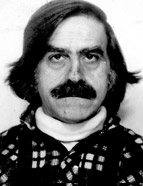

In other words, upon careful consideration and by way of an appraisal, these stances, as suggested above, placed Saraiva in a rather heterodox ideological position vis a vis the “ordinary” version of historical materialism as regards both the deterministic view of the cultural sphere and the uncontrollable finalism and positivism of the doctrine. And contrary to what one might be led to assume, as will be seen anon, some conjectural programmatic stances adopted in his post-university years in the context of harsh political, doctrinal, and intra-party fighting proved to have the same effect. Indeed, alongside the impressive afore-mentioned discursive collection– rarely can any author boast such remarkable and vast work at such an early age –the above-mentioned highly controversial writings were included in this cycle of historiographical and critical work, conferring upon him, within the space of almost two decades, the status of maître-à-penser of the national Marxist left wing.
Among Saraiva’s key theoretical and historiographical skirmishes in this troubled period, for which he used the Seara Nova (Lisboa) and Vértice (Coimbra) cultural journals as his main editorial platform, the controversies leading to his clashes with Jacinto do Prado Coelho and João Gaspar Simões (1945-1948) are worthy of mention. He accused these historians and literary critics of aesthetic idealism, psychologism, and mysticism, among other supposed or real weaknesses. He had used the same perspective to deconstruct the “mystical Hegelianism” of the mature work of Oliveira Martins during the period the latter had engulfed himself in Schopenhauer’s final and bleak pessimism. The ideology of a renegade, it may be said, quite aloof from his former youthful, euphoric, anti-capitalist, Proudhonian radicalism. Adopting the very same line of interpretation, Saraiva, still in his youth, had detected an analogous philosophical scepticism with a strong conservative tendency in the late works of Eça de Queirós and Ramalho Ortigão. (Crónicas [Chronicles], 2004, pp. 64-68).
However, his doctrinal scrutiny reached its climax and resonated across educated circles in the sour exchange of texts with his former ideological mentor António Sérgio. In his most lengthy response to António Sérgio, O caprichismo teórico do sr. António Sérgio [The theoretical whims of Mr. A. Sérgio] (1952), an epigonic and therefore ironic title in itself, Saraiva used both the most forceful and most subtle arguments to target the ambiguity and theoretical contradictions of the thinker, with particular emphasis on the gnoseological dichotomy implicit in the subject-object relationship which, at the time, was a sore point in all the debates on the theory of knowledge.
